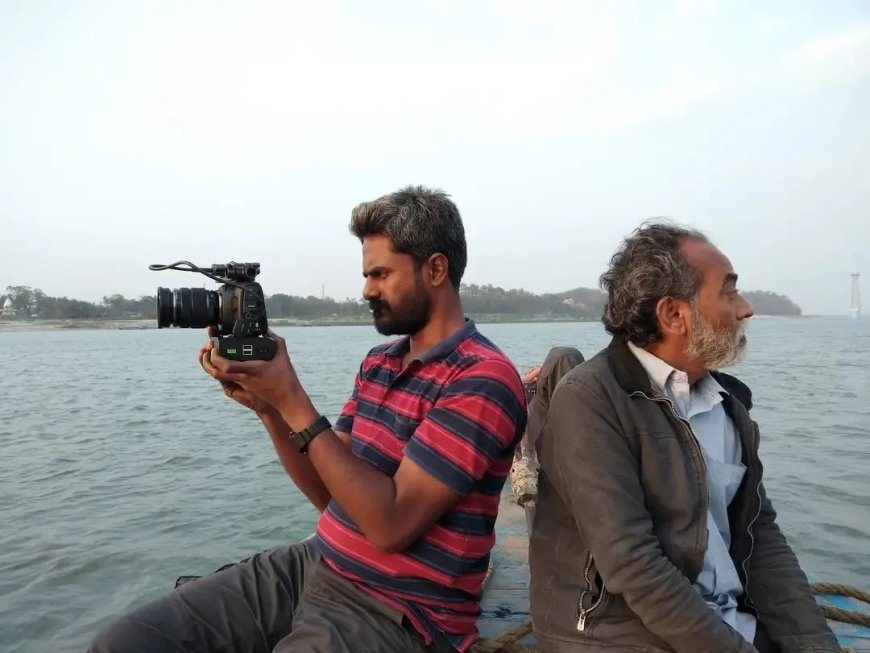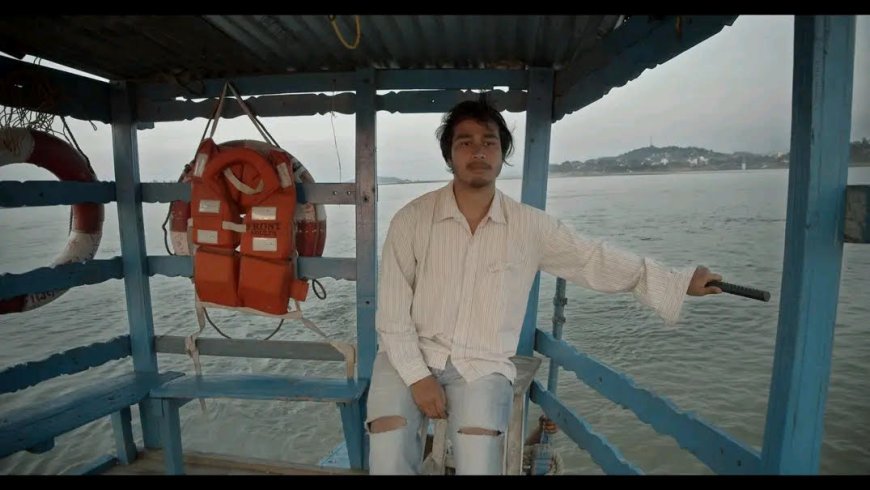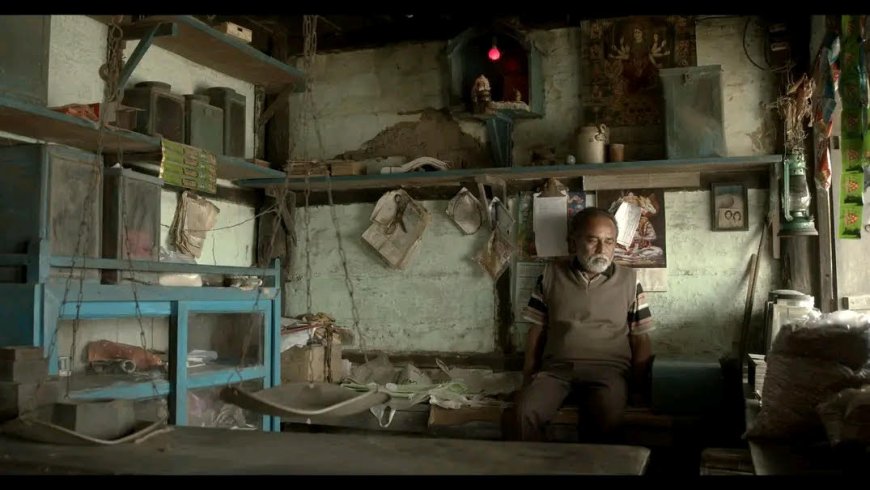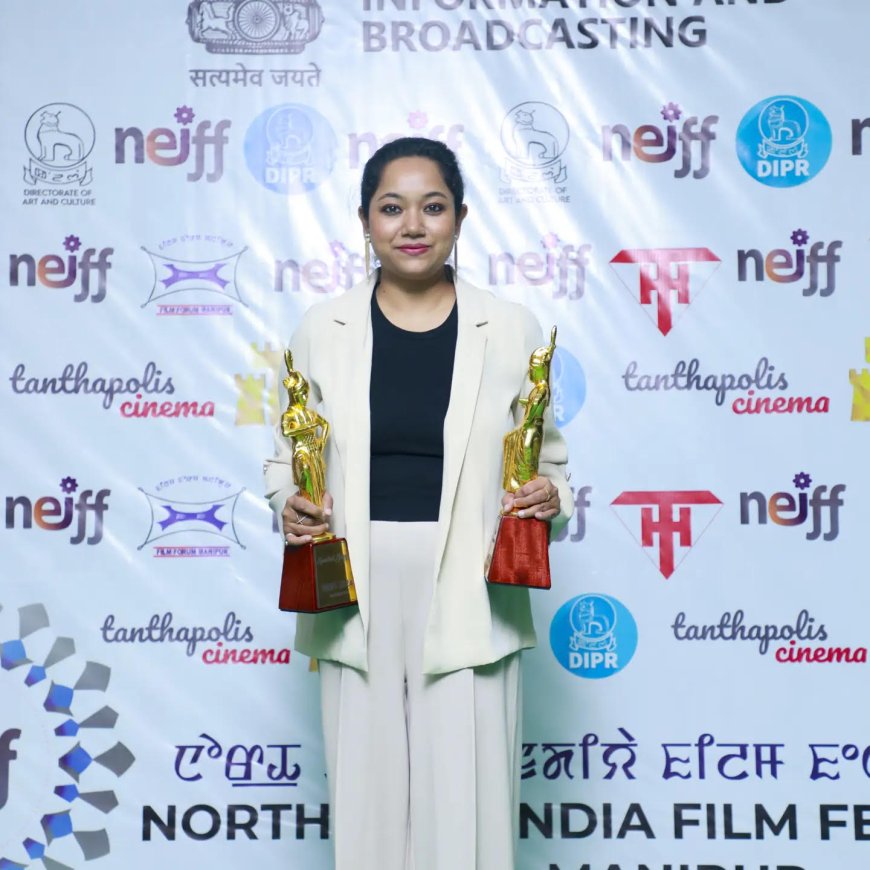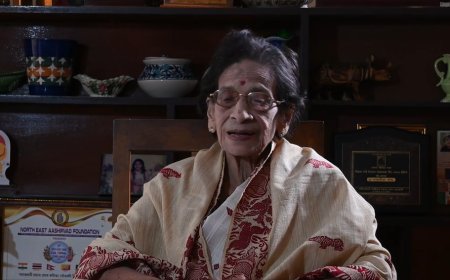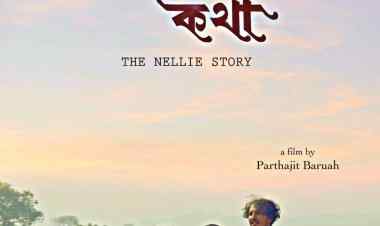Before Spring - A Beautiful Assamese Film
Dr. Shoma A. Chatterji provides a thoughtful review of the Assamese Film "Before Spring" by Shrutismriti Chankgkakoti.
Before Spring is the debut feature directed by Shrutismriti Chankgkakoti, a postgraduate, independent Assamese filmmaker currently based in Chennai. Earlier, she has worked as a chief assistant director in many ad films and for leading media houses in several film production-related jobs in Mumbai and Guwahati.
Before Spring bagged the best film, best cinematography, best editing, best screenplay, and best actor(male) at the 6th Sailadhar Baruah film awards, North-East, 2024. Add to this, the Prag Cine awards, North-East, 2024 conferred upon with the best debut director(Shrutismriti), critics’ choice best film, critics’ choice best actor played by Dipjyoti Kakoti, and best female debut actor played by Upasana Priyam. This was followed by the jury's special award and the best cinematography awards at the North-East India Film festival, 2024 organized by the Manipur(Imphal) state film Institute with the help of NFDC, I&B ministry. The film bagged best direction, best cinematography, best sound designing, and best performer(actor) awards at the recently concluded Guwahati Asian film festival, February 7-9th, 2025.
“Before Spring explores how some people have no way but to breach the real ground of their faith and accept it, and how poor economic status and social vulnerability take away their rights and security. The film tries to understand pure love versus conditional relationship and how conditions are imposed on us through systemic institutions. Before Spring speaks of the story of people of any small town in India carrying with it the fragility, sorrow, innocence, deceitfulness, and liveliness of very new-age village life,” says Shrutismriti about her film.
This writer watched the film twice after a short interval between the two viewings and loved it. The debutant director has used great restraint in telling simple stories of marginalised losers who are helpless within the circumstances they find themselves in. The director has kept both dialogue and music to the minimum and focussed more on the actors and the way they express themselves through silence and body language.
The story is simple and straightforward but the technical mastery in cinematic aesthetics is spell-binding. I think the sound designer deserves a special award.
The background score, the cinematography, the characterisations and the use of minimum dialogue tell their own stories. The river plays an important role in the film specially in the lives of the three ‘failed’ characters in the story. One is the young boy Jun (Abhijit Roy) (17) who loses his girlfriend when he fails in the final board exams again and, with a very poor widowed mother to take care of, takes up a job with the owner of a string of boats.
The second person is Monikanta (Dipjyoti Kakoti), the ageing husband of a much younger working woman who treats him like dirt because his small grocer’s shop is not doing well though he does all the housework and the gardening quite dutifully and well. The humiliated husband, who knows that his wife is having an affair, sells the shop and takes up a job as a security guard always on night duty at an apartment complex because he feels neglected by his family. He hardly speaks through the entire film but his silence says it all.
The third is Majoni, (Upasana Priyam) a pretty girl from a middle-class family who falls in love with her private tutor who gives her the royal ditch by marrying someone else more affluent than this girl. These characters are failures in the war of love and life but they all try to live through the failures and set sail on a boat watching the rippling waters of the river, the birds in flight and the beautiful blue sky above. They do not know each other but they are sailing in the same boat, literally and metaphorically.
According to the director, “Before Spring explores how some people have no way but to breach the real ground of their faith and accept it, and how poor economic status and social vulnerability take away their rights and security.”
Asked what formed the trigger for the story of Before Spring which she authored herself, Shrutismriti said, ““I wanted to start with a simple story for my debut film. It's a memory lane down to my childhood. I've collected a few snippets of our life and tried to contextualise it with the people who I've met, known, and grown up with. The idea was to keep minimum dialogue and tell more about the place, the landscape, and the sound and silence of the laidback place. I've grown up at the riverside of the mighty Brahmaputra, and it was always there in my subconscious mind to play with the river. The river is a character too in the film.”
“I named the film Before Spring because Spring is the newness in the life of all the characters. They have found a connection to their life, fallen love with their new time, moved forwarded, and accepted the life,” says the director about the intriguing title of a film where the character’s lives are anything but happy.
Asked which genre she would like to place her film in, the director says, “I would like to place it in Drama because it has all the elements of drama – the man-woman relationship presented in reverse, a young girl’s feelings of betrayal in her first love, an ageing man’s experience of failure in his business and in his personal life, a young man’s failure leading to his getting jilted by his girlfriend at once.”
The film, which took five years to reach the censor board, was shot entirely on location in North-Guwahati which is also the director’s native place. Responding to the question on how she feels about the critical success and the awards the film is gathering since its premiere at the MAMI film festival in July 2024, Shrutismriti says, “My immediate reaction is gratefulness towards the people who made it possible for me to make the film. The other reaction is "wish I had done this and that" to bring it better. Looking back, I've learnt to accept all kinds perspectives, criticism, and learnings. Learning cinema has more to do more with one's own inner self, and the challenges stand like learning doors.”
She says that as a director, “I love to connect at a personal level with the cast and crew. I want to understand their likings, dislikings, fear, and their comfort zone. Yes, script reading, discussions, understanding everyone’s point feedback, a bit of rehearsals are important ways for me getting into direction. I also believe in giving more space to my team. With actors, I love to take them to the place of their characters and people. I want the actors to understand the place, people, and the culture, and while doing so, I start to calling them by their character's names. All this happened with Before Spring, and I was comfortable with this method (at times struggling). It was a great learning experience for me too, as director,” she sums up.
*****
What's Your Reaction?





















































